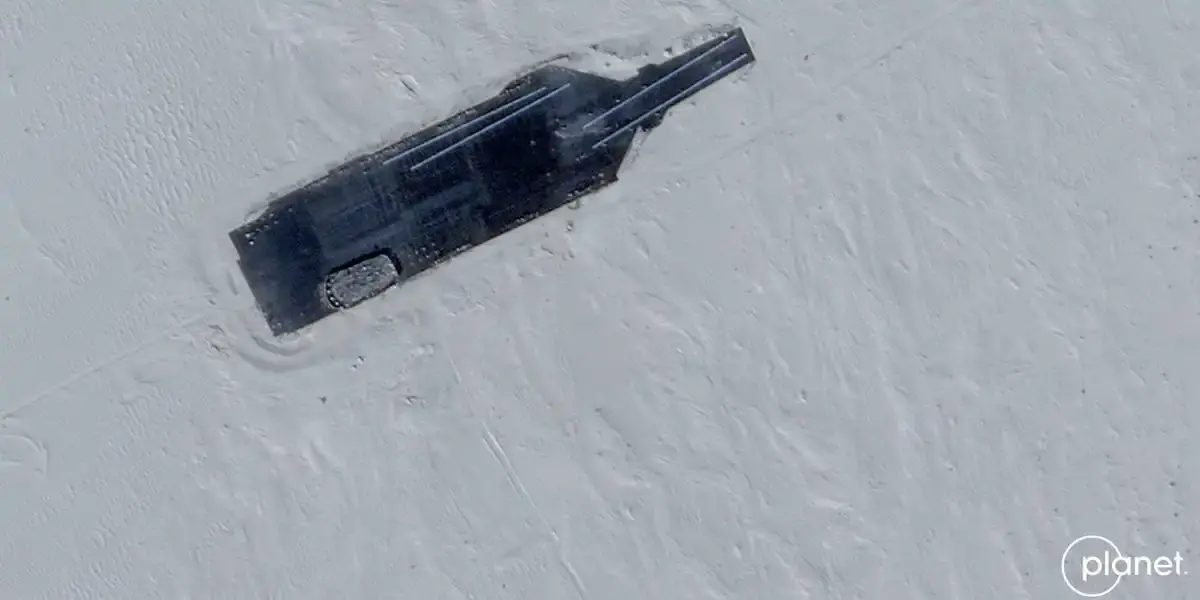Any military is going to practice things. It makes sense for china to practice this since they are literally surrounded by usa military bases and are threatened by them constantly. This is nothingburger.
The only thing that’s threatened by US military bases are their imperial ambitions in the region. There’s a reason why even Vietnam is seeking US protection. You know that the US isn’t going to attack China first.
You know that the US isn’t going to attack China first.
Then there’s the Trump factor…
They’ll literally just pay him personally to fuck off.
gotta admit, that is a lot safer approach than trying some shit on the real thing
I have a hunch they’re trying to attack the USS Gerald R. Ford aircraft carrier
They desperately want to stage their own Pearl Harbor, don’t they? I doubt it’ll go any better for them.
High value target, vulnerable in a conflict with China.
https://news.usni.org/2021/06/14/mda-u-s-aircraft-carriers-now-at-risk-from-hypersonic-missiles
Counter argument:
Caveat on this article:
Several contractors with a stake in the carrier debate contribute to my think tank, including Huntington Ingalls Industries HII —the only company in the world that manufactures large-deck, nuclear-powered carriers.
The thing with our current hypersonic missiles is that they’re only hypersonic during the transit. They don’t hit the target at hypersonic speeds. Traveling at those speeds creates plasma around the missile which prevents communication with airplanes, satellites or ground based radars. You also have to be high up in the atmosphere where air is thin or otherwise your missile is going to turn into a fireball way before it reaches the target. This is what also prevents you from attaching a seeker into the front of the missile; that would melt aswell.
This is why Ukraine has shot down Russian “hypersonic missiles” with the US patriot system even though that should be impossible. It is impossible while the missile is still hypersonic but that’s not when you intercept it. You wait for it to get closer and slow down first. That’s why Kinzhal doesn’t really count as a hypersonic weapon or if it does then so does the German V-2 from the 40’s.
I don’t get the claim about it being “impossible” to shoot it down while hypersonic, either.
So maybe it’s high enough that you don’t have any interceptor missile capable of reaching that altitude… but if you had one, that hypersonic ball of plasma is not “hyperluminic”, all that radio noise is going to light up on any radar like a beacon. Sounds like it should be easy to predict its trajectory, particularly knowing that it can’t maneuver much at hypersonic speeds, so it should be even easier to plot an intercept course.
It may by impossible to shoot it down from behind, or from a plane right underneath that doesn’t have hypersonic interceptor missiles, but from any position in front of the enemy missile… you could float a balloon onto its path, and hit it.
Also, there is lasers. They may not be great as an offensive weapon, or too easy to mount onto a plane, and need several seconds to burn an incoming missile to a crisp… but they do work at the speed of light, can’t beat that.
🤖 I’m a bot that provides automatic summaries for articles:
Click here to see the summary
New satellite images have captured what appears to be a mock-up of the USS Gerald R. Ford aircraft carrier on a range in a Chinese desert.
The suspected target appears to match the shape, size, and certain details of the USS Gerald R. Ford, according to The War Zone, which first reported the satellite images.
The Planet Labs images show the island, more aft than Nimitz-class carriers, and the four catapult tracks marked on the model’s deck.
In the Indo-Pacific region, the US Navy regularly operates aircraft carriers and other warships, routinely patrolling waters and frequently conducting military exercises.
If China is looking to test missiles against the model of the Ford, it would align with their apparent goals to bolster the capabilities of the rocket force, including its anti-ship elements.
The warship’s hefty price tag exceeded $13 billion and majorly inflated due to delays and technological integration issues.
Saved 76% of original text.




